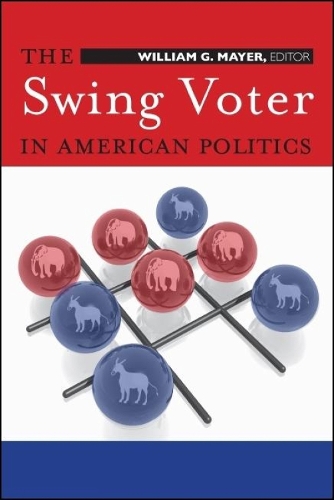
The Swing Voter in American Politics
(Paperback)
Publishing Details
The Swing Voter in American Politics
By (Author) William G. Mayer
Bloomsbury Publishing PLC
Brookings Institution
8th January 2008
United States
Classifications
General
Non Fiction
Political parties and party platforms
324.973
Physical Properties
Paperback
166
Width 152mm, Height 229mm
Description
"
The ""swing voter"" occupies a cherished place in American political lore. Candidates court swing voters, consultants target them, and pundits speculate constantly on which way they will lean. But nobody has adequately defined them as a group. What exactly is a swing voter No one really seems to know. T he Swing Voter in American Politics fills this conceptual gap. The book brings political scientists and pollsters together to answer four basic questions: What is a swing voter How can analysts use survey data to identify swing voters How do swing voters differif at allfrom the rest of the electorate And what role do swing voters play in determining the outcomes of contemporary elections Drawing on a wide range of sources, including American National Election Studies Data, Gallup polls, Pew Center surveys, and the National Annenberg Election Survey, the contributors track swing voters across six decades and in national and local elections. The result is an unprecedented picture of this key political group, just in time for the 2008 campaigns. Contributors include James E. Campbell (University of Buffalo), April Clark (Pew Research Center for the People & the Press), Adam Clymer (Annenberg Public Policy Center, University of Pennsylvania), Michael Dimock (Pew Research Center for the People & the Press), Juliana Menasce Horowitz (Pew Research Center for the People & the Press), Jeffrey M. Jones (Gallup Organization), Daron R. Shaw (University of TexasAustin), Jeffrey M. Stonecash (Syracuse University), Ken Winneg (Annenberg Public Policy Center, University of Pennsylvania).
"Reviews
Author Bio
William G. Mayer is associate professor of political science at Northeastern University. His books include The Front-Loading Problem in Presidential Nominations, written with Andrew E. Busch (Brookings, 2004), and The Making of the Presidential Candidates 2004 (Rowman and Littlefield, 2003).
